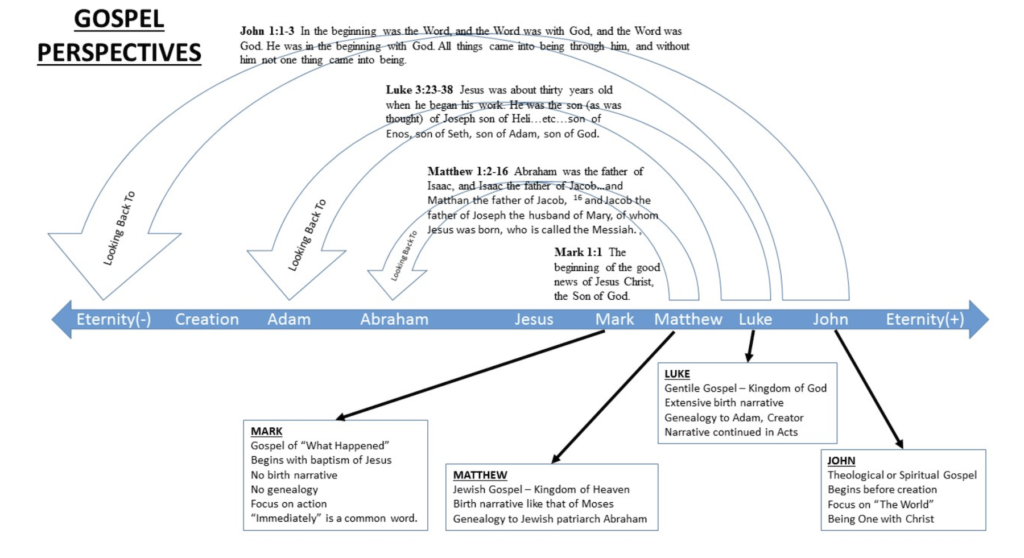Before making the change from Lutheran to Catholic, I read through the several hundred pages of the Catechism of the Catholic Church and concluded that the Catholic Church could reasonably be described as “full gospel,” a term relatively recently and narrowly applied to some charismatic evangelical churches, but that, in the case of Catholicism, it would mean paying attention to all of Sacred Scripture, and to the ways it was written, compiled, understood, preserved, revered, and practiced by the early Church.
The key statement in the Catechism about the Bible is this: “All Sacred Scripture is but one book, and this one book is Christ, because all divine Scripture speaks of Christ, and all divine Scripture is fulfilled in Christ.” (P134). With that understanding of the Bible, Catholicism generally resists the temptation to boil down the complexity of our relationship with the Triune God to simple formulas and selected Bible verses without context. We reverently hear readings of Sacred Scripture from the Old Testament, Psalms, Epistles, and Gospels in most celebrations of The Mass, but it is clear that Catholics do not worship the Bible (or Mary either). It is the Triune God alone, Father, Son, and Holy Spirit whom Catholics worship.
I have joked that one reason I became Catholic was that I wanted to be persecuted. Not true of course but I do hear and read disturbing condemnations of Catholicism from time to time from serious and faithful non-Catholic Christians. There are still divisive issues that keep us from being one, but I have concluded that the answer to those divisive issues is usually not either-or, but both-and. We have been saved, and we are being saved, and we will be saved. We are predestined and we are called to make decisions for Christ. We are adopted, our names written down, justified by grace through faith, and we are commanded to persevere, obey, work, give, serve, love, learn, and finish the course. Jesus came to save souls and to save the world. God created the heavens and the earth (in unknown ways) and that act of creation continues and includes all the processes still operating, including any “evolutionary” processes. Eternal life begins when we are baptized and there will be a resurrection, details of which I have no knowledge and about which I have no concern, at some future time. These are just examples. If one carefully considers Sacred Scripture in its entirety, I believe that the both-and approach is validated and that we waste our time insisting on either-or decisions rather than serving together. We, the Body of Christ, have a job to do.
During progression through three prior Christian denominations, I sometimes had the conviction that the current theology I was hearing was correct and would argue in defense of it. Now, in the Catholic Church, I believe that the theology is sound, but the primary feeling is one, not of being right, or of needing to prove or argue in favor of anything, but of being at home, in The Church, even if I sometimes see and hear things (usually expressions of personal piety or theological slants) that cause a little discomfort. And I take comfort joining weekly with Catholics around the globe, hearing the same selections from Sacred Scripture, reciting the Nicene Creed, and “passing the peace” in hundreds of languages, and then standing in line with fellow worshipers, awaiting my turn, to share in the Body and Blood of Christ.
Thanks be to God!



